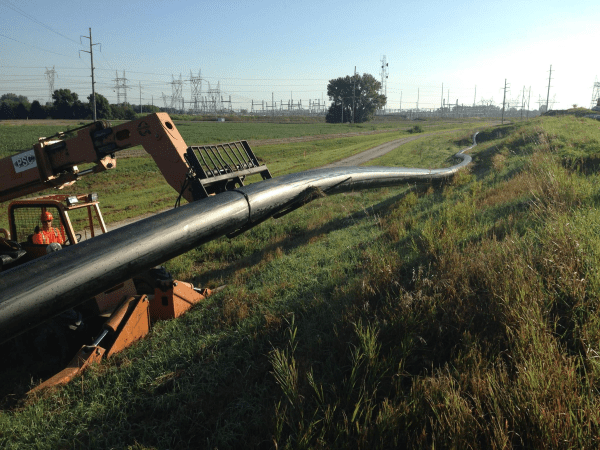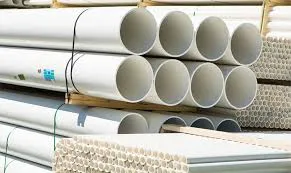Jul . 08, 2025 08:56 Back to list
High-Quality PVC Borehole Pipes Durable & Versatile Pipe Solutions
- Introduction to PVC Borehole Pipes: Understanding Their Importance in Water Extraction
- Technical Advantages of PVC Borehole Pipes over Traditional Materials
- Comparison Between Leading Types of Pipes and Manufacturers
- Customization Solutions: Tailoring PVC Borehole Pipes to Specific Project Needs
- Data-Driven Use Cases and Application Scenarios of PVC Pipes
- Maintenance and Longevity Insights: Best Practices
- Conclusion: The Future Outlook for PVC Borehole Pipes in Industry

(pvc borehole pipes )
Introduction to PVC Borehole Pipes: Understanding Their Importance in Water Extraction
PVC borehole pipes have become a critical component in modern water extraction systems. With increasing global demand for fresh groundwater, the efficiency and reliability of pipe systems are now in the spotlight more than ever. The use of polyvinyl chloride (PVC) as the primary material offers distinct advantages for borehole applications, such as corrosion resistance, durability, and ease of handling. Moreover, these pipes offer an impressive hydraulic flow capacity, thanks to their perfectly smooth internal surfaces, which directly translate to reduced energy costs in pumping operations. The market for PVC borehole pipes is projected to grow at a CAGR of 6.5% from 2024 to 2030, outpacing other material-based solutions. Understanding why these pipes are preferred and how they are utilized forms the foundation for any critical infrastructure project focusing on water extraction and distribution.
Technical Advantages of PVC Borehole Pipes over Traditional Materials
When compared with steel, HDPE, and concrete counterparts, PVC borehole pipes exhibit notable technical superiority. For instance, PVC is inherently resistant to chemicals and biocorrosion, which extends its service life in aggressive subsurface environments. Unlike metal pipes, PVC requires no galvanic protection or costly linings, thus eliminating related maintenance overheads. The lightweight nature of PVC facilitates ease of transportation and installation, reducing both labor costs and timeframes by up to 40% according to recent industry statistics.
Another significant advantage is structural performance under pressure. Modern manufacturing techniques ensure that these pipes can withstand pressures up to 25 bars, meeting and exceeding industry compliance standards for deep borehole operations. Additionally, thermal conductivity is several times lower than that of steel, ensuring minimal heat loss and stable extraction conditions in temperature-sensitive applications. These features make PVC borehole pipes exceptionally reliable, with an average expected lifespan of 50 years under normal operating conditions.
Comparison Between Leading Types of Pipes and Manufacturers
Selecting the appropriate type of pipe and manufacturer is crucial to the success and longevity of water infrastructure projects. The following table provides a comparative overview of the main pipe types (PVC, HDPE, Steel, Concrete) and leading global manufacturers based on parameters such as lifecycle, weight, installation speed, corrosion resistance, and cost-effectiveness.
| Parameter | PVC Borehole Pipe (Company A) |
HDPE Pipe (Company B) |
Steel Pipe (Company C) |
Concrete Pipe (Company D) |
|---|---|---|---|---|
| Lifespan (Years) | 50+ | 40 | 25-40 | 30-50 |
| Average Weight (kg/m) | 3.2 | 4.5 | 12.1 | 19.0 |
| Installation Speed (m/hour) | 120 | 100 | 70 | 50 |
| Corrosion Resistance | Excellent | Very Good | Poor | Good |
| Cost per Meter (USD) | 6.50 | 8.00 | 14.00 | 12.50 |
The data reveals that PVC borehole pipes not only outperform in operational metrics but also offer a much lower total cost of ownership. Company A, as a premier PVC manufacturer, maintains rigorous quality assurance protocols, ensuring compliance with ISO 4422 and BS 3505 standards.
Customization Solutions: Tailoring PVC Borehole Pipes to Specific Project Needs
Not all borehole projects require standard pipe dimensions or configurations. The flexibility in manufacturing processes allows PVC pipes to be custom-designed for inner diameters ranging from 40 mm to 400 mm, and wall thicknesses that meet specific hydrostatic and structural demands. Customization options also extend to slotting (for screen pipes), threading, and pressure ratings, maximizing water yield and well efficiency.
Manufacturers are also capable of supplying pipes in variable lengths, with jointing systems such as solvent cement, rubber ring, or threaded connections, fitting diverse installation scenarios. Personalized color coding and branding further enhance project traceability. For environments with elevated exposure to UV or chemical agents, advanced PVC blends with enhanced stabilizers are offered to provide additional protection and durability. Consulting with a specialized types of pipes PVC manufacturer ensures tailored product solutions that meet regulatory, environmental, and site-specific needs.
Data-Driven Use Cases and Application Scenarios of PVC Pipes
As the most commonly used non-metallic pipe in borehole water extraction, PVC pipes have proven indispensable in a wide range of sectors. From agricultural irrigation to large-scale municipal supply networks, the adaptability of this product is evident. Recent deployment data indicate that more than 75% of newly drilled groundwater wells in developing regions now specify PVC for main-lining due to its operational efficiency and minimal maintenance requirements.
In the oil and gas exploration sector, specialized PVC liners serve to protect steel casings from corrosive fluids, extending operational life by a further 20 years. Remote village electrification projects in South Asia employ PVC borehole pipes as the backbone of groundwater-driven microgrid systems, with documented flow rates consistently above 40 m³/hour and operating costs reduced by 30% year-on-year due to lower pump friction losses.
The versatility of PVC also extends to geothermal and environmental monitoring wells, demonstrating reliable long-term service under varied thermal cycling and chemical exposure. Data from a 2023 industry review highlights that, globally, more than 60% of new industrial extraction boreholes have shifted from steel to PVC, primarily due to lifecycle economics and risk mitigation.
Maintenance and Longevity Insights: Best Practices
Maintenance strategies play a decisive role in maximizing the lifespan of PVC borehole pipes. Thanks to their smooth bore, these pipes inherently resist scale formation and biofouling. Periodic inspection by downhole cameras reveals that occurrence rates of internal deposit build-up are less than 1.3%, a fraction compared to traditional steel installations.
Best practice for installation includes ensuring proper bedding and backfill material to avoid point loading and mechanical stresses. Adherence to recommended torque values for threaded joints prevents microcracking. Simple preventative routines—such as annual flow performance testing and chlorine flushes—are sufficient to keep systems fully operational. Typical maintenance overhead is as low as $0.07 per meter per year, which is 85% less than with metal piping systems.
Studies also reveal that, even after two decades in service, high-quality PVC borehole pipes typically retain over 97% of their original performance characteristics, making them a long-term asset for operators.
Conclusion: The Future Outlook for PVC Borehole Pipes in Industry
PVC borehole pipes have established themselves as the preferred choice in most water extraction and distribution projects, offering robust performance, ease of customization, and superior economic returns. Continuous advancements in resin formulation, manufacturing precision, and environmental compliance are expected to further strengthen their market position. As climate variability and regulatory demands intensify around groundwater management, the reliability and adaptability of these pipes will be pivotal.
Looking ahead, innovations such as smart pipe monitoring (embedded sensors) and recycled-content PVC are on the horizon, promising to elevate the sustainability and functionality of types of pipes PVC manufacturers can offer. Ultimately, understanding what are PVC pipes used for extends beyond just water extraction, encompassing integrated roles in agriculture, environmental protection, and infrastructure development. The combined impact of technological evolution and strategic adoption points toward a resilient, efficient, and sustainable future powered by PVC borehole pipe solutions.

(pvc borehole pipes )
FAQS on pvc borehole pipes
Q: What are PVC borehole pipes?
A: PVC borehole pipes are durable polyvinyl chloride pipes designed to line and protect boreholes for water extraction. They prevent soil collapse and contamination. These pipes are commonly used in groundwater extraction systems.Q: What types of pipes does a PVC manufacturer typically offer?
A: A PVC manufacturer usually offers borehole pipes, pressure pipes, casing pipes, and conduit pipes. Each type serves different applications, such as water supply, electrical wiring, and borehole protection. Special grades are available for specific needs.Q: What are the main uses of PVC pipes?
A: PVC pipes are commonly used for water supply, irrigation, sewage, and borehole lining. They are popular due to their corrosion resistance and longevity. These pipes are also used in plumbing and industrial systems.Q: Why choose PVC borehole pipes over metal pipes?
A: PVC borehole pipes are lighter, corrosion-resistant, and easier to install than metal pipes. They have a longer lifespan in most groundwater conditions. Their non-reactive nature helps maintain water quality.Q: Can PVC borehole pipes be used for both shallow and deep wells?
A: Yes, PVC borehole pipes can be used for both shallow and deep wells when selected according to pressure and depth requirements. Manufacturers provide various thicknesses and diameters for different applications. Always consult specifications before choosing the right pipe.-
DN100 PVC Pipes for Well Casings - Durable & Corrosion-Resistant
NewsAug.22,2025
-
HORON 25mm PPR Plumbing Pipes: Durable, Reliable & Leak-Proof
NewsAug.21,2025
-
32mm HDPE Pipes in Coil: Flexible & Durable Water Supply
NewsAug.19,2025
-
Flexible 32mm HDPE Pipes in Coil - Durable & Easy Install
NewsAug.18,2025
-
HDPE Sprinkler Pipe Manufacturers - Quality & Durable Solutions
NewsAug.17,2025
-
Durable DN100 PVC Well Casing Pipes for Reliable Water Supply
NewsAug.16,2025

